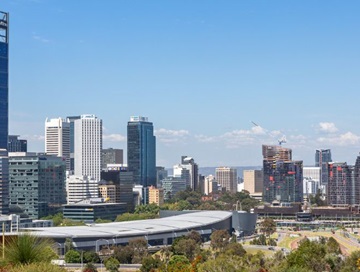As a rental provider, it is important to understand your rights and obligations when it comes to the health standards of your property.
Mould in particular can be a serious issue to the health of a person, and the structure of your property.
Although the laws around who is responsible for the mould are not so black and white, there are some obligations you have when you are leasing your property out.
What is mould?
According to the Department of Mines, Industry Regulation and Safety (DMIRS), moulds are fungal organisms that multiply by producing very small spores. When disturbed, these spores are carried in the air and if they land in a place that provides moisture and a food source, they start to grow. Mould can develop on a wide range of surfaces. These can be on, within or underneath walls, ceilings, and other hard and soft surfaces in homes.
Common sources of moisture indoors include roof and gutter leaks, flooding, leaking and burst pipes, unflued gas heaters, and condensation from cooking, showering, and clothes drying.
Mould is more likely to grow in colder weather when air flow through the house is minimal. This can be due to activities like hot showers, cooking hot food, tumble drying clothes or anything that produces steam whilst windows and doors are kept closed.
Quite disturbingly, mould has a number of severe health risks that should be taken seriously. People who inhale, ingest, or have skin contact with the mould spores or particles can experience asthma-like respiratory illnesses, sinus problems, chronic cough, headaches, tiredness, frequent sneezing, rashes, and watery, itchy, red eyes.
Mould can also seriously damage the structure of your property if left too long and it can also eat away inside your walls when undetected. Which is why in-depth, routine inspections of your property are essential.
What are my obligations as a rental provider?
Mould caused by structural issues, such as a leak in the roof, a faulty pipe, malfunctioning gutters that overflow into the property, rising damp, lack of ventilation in the roof, or poorly working ventilation fixtures like exhaust fans or windows, will typically be your responsibility to fix.
You are required to keep the property in a reasonable state of repair, meet building, health and safety requirements, and ensure all repairs are undertaken within a reasonable time frame.
It is within your best interest to ensure you are following through with your obligations, otherwise, your tenant could serve a notice of breach if these obligations are not met. It could also mean that the tenant may end the tenancy early without any penalties if the property becomes uninhabitable. Also, you could be responsible for damage to the tenant’s property caused by any inaction.
Simply put, if you are having regular inspections and are utilising a REIWA property manager, you should avoid any issues with mould arising or escalating.
Sometimes, the tenants may be held liable for a mould outbreak if they are:
- not using exhaust fans or opening windows when showering or cooking,
- not allowing ventilation of a room when drying clothes inside,
- not drying water spills or wiping up condensation on surfaces or
- storing large amounts of water-absorbent materials such as books, cardboard boxes and soft furnishings in a damp space.
In a scenario where the tenants have failed to report mould build-up or fail to report an issue that has led to the mould build up to their property manager, then they would be held liable.
For more information about this, read Tenant responsibilities when it comes to mould.
More information
Find a local REIWA property manager or visit the advice section for more articles.
.tmb-imgwidgetm.jpg?sfvrsn=292f92ed_1)









